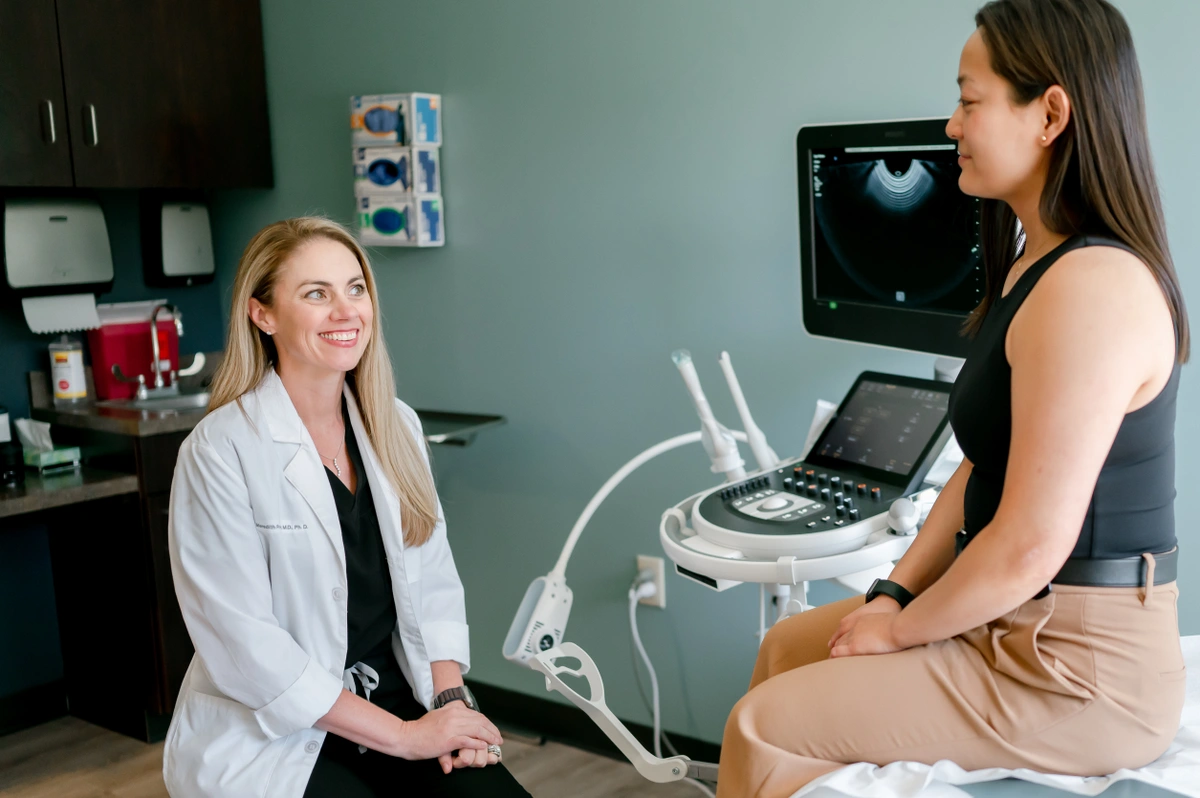
The Key Differences Between an OB/GYN and an REI
When it comes to women’s health and fertility care, the roles of an obstetrician and gynecologist (OB/GYN) and a reproductive endocrinologist and infertility specialist (REI) often overlap, leaving many patients wondering which provider is best suited for their needs. While both are vital in supporting reproductive health, their training, expertise, and scope of practice differ significantly. Let’s break it down.
What is an OB/GYN?
An obstetrician-gynecologist (OB/GYN) is a physician who specializes in the general health of the female reproductive system, pregnancy, and childbirth.
Key Responsibilities:
-
Routine Care: Annual exams, Pap smears, and breast health screenings.
-
Pregnancy and Childbirth: Managing pregnancies, labor, and delivery.
-
Gynecological Conditions: Treating menstrual disorders, pelvic pain, and uterine fibroids.
-
Basic Fertility Care: Providing initial evaluations and treatments for infertility, such as ovulation tracking and prescribing medications like Clomid. This will vary from provider to provider.
Training:
-
4 years of medical school
-
4 years of residency in obstetrics and gynecology
-
Board certification in obstetrics and gynecology (optional but common)
OB/GYNs are typically the first stop for women with fertility concerns and can address general reproductive health needs.
What is an REI?
An REI is an OB/GYN who has undergone additional training to specialize in diagnosing and treating complex fertility issues and hormonal disorders affecting reproduction.
Key Responsibilities:
-
Advanced Fertility Treatments: Performing procedures like in vitro fertilization (IVF) and intrauterine insemination (IUI).
-
Hormonal Disorders: Addressing issues like polycystic ovary syndrome (PCOS).
-
Male Factor Infertility: Evaluating and managing conditions affecting sperm quality and function.
-
Recurrent Pregnancy Loss: Diagnosing and treating underlying causes of miscarriages.
-
Fertility Preservation: Offering egg and embryo freezing for individuals planning for future parenthood.
Training:
-
4 years of medical school
-
4 years of OB/GYN residency
-
3 additional years of fellowship training in reproductive endocrinology and infertility
-
Board certification in reproductive endocrinology and infertility (optional but highly regarded)
This advanced training equips REIs with the expertise to handle complex fertility challenges that extend beyond the scope of a general OB/GYN. At IFI, both of our physicians are board certified in both obstetrics and gynecology and reproductive endocrinology and infertility.
When Should You See an REI?
While an OB/GYN can assist with basic fertility care, an REI is better suited for individuals who:
-
Are under 35 and have been trying to conceive for 1 year without success.
-
Are over 35 and have been trying to conceive for 6 months without success.
-
Have a known fertility issue, such as blocked fallopian tubes or a history of endometriosis.
-
Need advanced reproductive technologies like IVF.
-
Are considering third-party reproduction, such as egg donation or surrogacy.
-
Wish to preserve fertility through egg or sperm freezing.
Collaboration Between OB/GYNs and REIs
OB/GYNs and REIs often work hand-in-hand to provide comprehensive care. Many patients are referred to an REI by their OB/GYN for specialized fertility treatments, and once pregnancy is achieved, they return to their OB/GYN for prenatal care and delivery.
Final Thoughts
Choosing between an OB/GYN and an REI depends on your specific needs and fertility goals. While OB/GYNs provide essential reproductive care and initial fertility evaluations, REIs offer the expertise needed for advanced treatments and more complex fertility challenges. Understanding the distinction between these two specialists ensures you receive the care best suited to your journey.
If you’re unsure whether you need an REI, reach out to your OB/GYN or contact our fertility clinic for a consultation. We’re here to guide you every step of the way.

